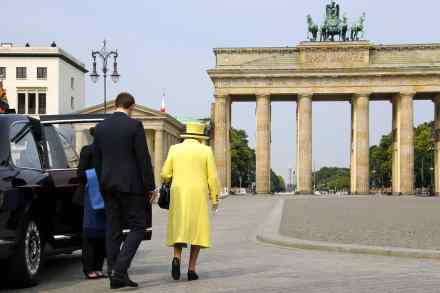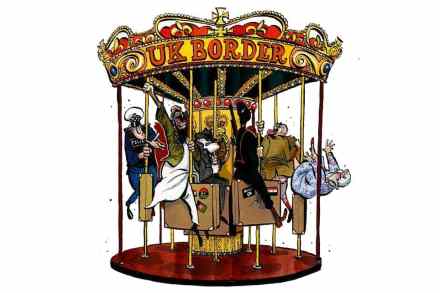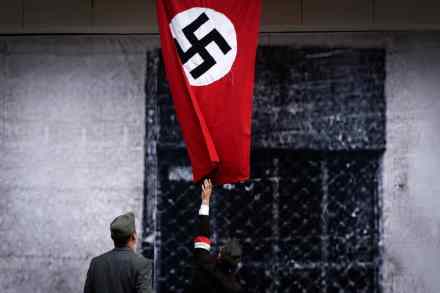How the Queen helped to fix Germany
The Brandenburg Gate has often reflected the state of the German nation. Throughout the centuries, Berlin’s iconic landmark has been a symbol of victory, defeat, unity, division and restoration. It has even reflected Germany’s energy crisis, no longer lit in order to save electricity. But on Friday night it shone brightly once more: in red, white and blue as Germany mourns the death of Queen Elizabeth II. This is much more than a gesture of condolence. ‘Expressing our sympathy and our mourning by lighting the symbol of our city and our country in the colours of the Union Jack to honour Queen Elizabeth II fully represents the sentiments of people





















